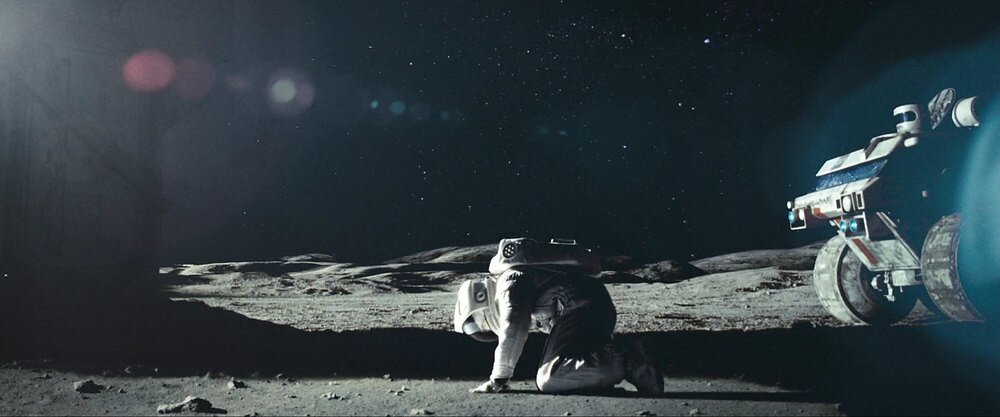UK | 2009 | Directed by Duncan Jones
Logline: When a harvesting contractor, working alone on the moon, is badly injured, the Earth-based company tries to rectify the situation, but a glitch occurs, with alarming results.
Sam Bell (Sam Rockwell) is nearing the end of his three-year contract for Lunar Industries, working at the Sarong Station on the Moon. The Helium-3 mining operation is mostly fully automated, so for the duration of his contract he works alone, with the exception of GERTY (voiced by Kevin Spacey), the station’s AI. Bell is responsible for overseeing the harvesters, maintaining operations, and launching the canisters of extracted alternative fuel back to Earth.
There has been a chronic failure with the live feed communication system so Bell is forced to deal with the occasional recorded video messages from his wife, who was pregnant when he left Earth. Not an ideal situation, with Bell beginning to struggle with his coping mechanisms. There’s only a fortnight left before his return to Earth and he has begun to suffer from fragmented hallucinations, one of which causes him to crash the lunar rover into a harvester, rendering him unconscious.
Bell awakes in the infirmary with no memory of the accident, and begins to suspect management and GERTY are withholding information from him when Lunar Industries HQ announce that a team has been dispatched from Earth to repair the damaged harvester. Bell investigates and makes a startling discovery.
This is the debut feature from Duncan Jones (who grew up as Zowie Bowie, the son of David and Angie), and he provided the story, the screenplay of which was penned by Nathan Parker. It’s a fascinating premise that deals with the themes of loneliness, identity, corruption, and betrayal. Essentially it’s a vehicle for Sam Rockwell’s superb acting talents, while the narrative balances and probes elements of existentialism and nihilism, yearning and desperation, ethics and mortality. Not forgetting industrial and conglomerate automation, progression and greed.
Made on a modest budget of $5 million, shot entirely on a soundstage, using miniature models and mostly practical and optical effects, the vibe pulls from the great sf films of the 70s and early 80s, yet manages to avoid looking or feeling derivative. Indeed the production design and art direction bear a striking similarity to Alien, a sly wink that both movies could be from the same universe.
Moon is succinct, yet provocative, edgy and rewarding. Streaked with melancholy, but provides a lilt of hope. Richly atmospheric, humorous at the right moments, it is one of the more emotionally resonant science fiction movies of the past twenty years, and far more affecting than Christopher Nolan’s epic Interstellar, which covers similar intellectual and existential time and space.
Moon is a brilliant future retro classic.




